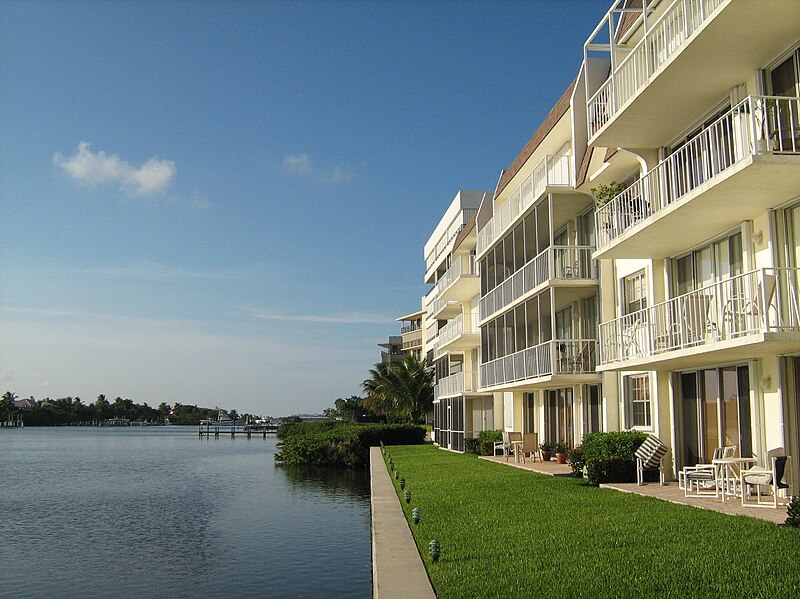In Florida, one result of the past few year’s foreclosure fraud crisis has been chaos for condo associations across the state as Florida condo unit owners have become delinquent in paying assessments. Often, strapped condo owners make arrangements with their lenders regarding deficiency judgments but fail to do the same with their condo associations. It’s a very risky road to take.
Florida Condo Associations Have the Power to Sue for Past Due Assessments
Florida Statute 718.103 defines an “assessment” as follows:
“Assessment” means a share of the funds which are required for the payment of common expenses, which from time to time is assessed against the unit owner.
When assessments go unpaid, the Florida Condo Association faces continuing responsibilities for the upkeep and maintenance without having that assessment revenue, which can be very disruptive and create an Association anxious to find ways to fill that void. More and more, particularly in South Florida, condominiums are the subject of foreclosure and in these situations the condo owner is usually more concerned with the fight over the bank foreclosure than the past due condo assessments.
Meanwhile, since Florida foreclosures are notorious for how long they take to get from start to finish, the condo association cannot set a specific time frame to predict when the foreclosure action, if it has been filed, will be completed and assessments will return.
Accordingly, Condo Associations often try to push foreclosing banks to get things moving, because that Association wants to recoup its past due assessments (along with its legal fees) as soon as possible.
The Condo Association isn’t limited to applying pressure on the foreclosing bank in these situations. They can sue to get paid.
As we have discussed before, a Florida Condo Association can also file its own lawsuit against the condo owner who has stopped paying their condo assessments. Additionally, the Association can file a foreclosure action, based upon past due assessments, against a bank who has foreclosed upon a condo unit and failed, as its new owner, to pay the assessments.
Florida Statutes Authorize Condo Owner Association to Pursue Assessments in Court
Florida Statute §718.116 applies in these situations. This Florida lien law provides that the financial liability of the lender (first mortgagee) is limited by the Condo Owner Association’s covenants, and whether or not the Condo Association can collect will depend upon the documentation applicable to the Condominium Association as well as the language contained in the mortgage and loan documents.
Furthermore, Florida’s Condominium Act (Chapter 718) places the responsibility for payment of all assessments that became due while an individual legally owned a Florida condo upon that person.
A unit owner, regardless of how his or her title has been acquired, including by purchase at a foreclosure sale or by deed in lieu of foreclosure, is liable for all assessments which come due while he or she is the unit owner. Additionally, a unit owner is jointly and severally liable with the previous owner for all unpaid assessments that came due up to the time of transfer of title. This liability is without prejudice to any right the owner may have to recover from the previous owner the amounts paid by the owner.
(b)1. The liability of a first mortgagee or its successor or assignees who acquire title to a unit by foreclosure or by deed in lieu of foreclosure for the unpaid assessments that became due before the mortgagee’s acquisition of title is limited to the lesser of:
a. The unit’s unpaid common expenses and regular periodic assessments which accrued or came due during the 12 months immediately preceding the acquisition of title and for which payment in full has not been received by the association; or
b. One percent of the original mortgage debt. The provisions of this paragraph apply only if the first mortgagee joined the association as a defendant in the foreclosure action. Joinder of the association is not required if, on the date the complaint is filed, the association was dissolved or did not maintain an office or agent for service of process at a location which was known to or reasonably discoverable by the mortgagee.
Larry Tolchinsky’s Tip:
Florida condo owners need to know that a Florida Condo Owner Association can sue a condo homeowner for a deficiency judgment and seek recovery against their other assets (bank accounts, stocks, bonds, etc…) if the Association isn’t made whole on past due assessments, regardless of whether the Association is the party filing foreclose on the condo or if the Association is wiped out by a mortgage foreclosure filed by the mortgage lender. In today’s Wild West of Florida real estate law, Condo Associations are gunning to be repaid and condo owners need to be prepared fight against a deficiency judgment lawsuit.
For more information, check out these posts:
- Florida Condo Owners: 3 Things You Should Know About Your HOA Rights as a Member of a Florida Condominium Association
- For Owners, Renters, HOAs, Timeshare and Condo Boards – Alert: 4 New Laws Effective July 2012 for Florida Condos and Florida Timeshares

Do you have questions or comments? Then please feel free to Chat with Larry in the comments below, at info@hallandalelaw.com, or (954) 458-8655. If you have a specific or personal situation, please call or email Larry because he can’t answer specific fact questions in general comments.
“I’m happy to take your call.”



OUR ASSOCIATION HAS A CONDO IN FORECLOSURE WHICH IS OWNED BY HOUSING AND URBAN DEVELOPMENT.
WE HAVE BEEN INFORMED THAT WE CAN ONLY RECOVER TEN PERCENT OF PAST DUE FEES.
CAN WE SUE HUD?
THANK YOU
EDDIE THOMAS